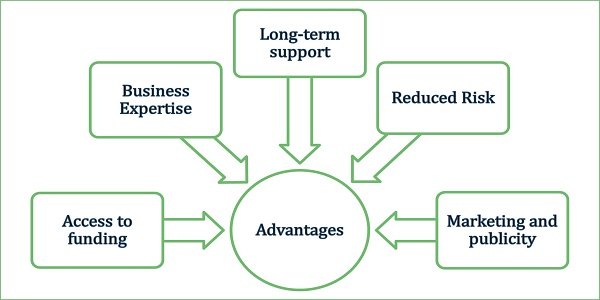Introduction: –
Start-ups are often born out of the passion and vision of their founders, who invest countless hours and resources into turning their ideas into reality. However, as start-ups grow and seek additional funding to scale their operations, they may turn to venture capitalists for support.
Venture capital is a form of financing that involves investment in high-potential start-ups and early-stage companies. In contrast to conventional funding sources, venture capital usually involves equity financing, in which investors contribute funds in return for a stake in the business. High risk and high return expectations define this form of investment. Venture capital is essential for supporting the development, expansion, and eventual exit strategies of businesses including seed, early, and growth.
Venture capitalists (VCs) play a dynamic role in startup business, often going above and beyond providing financial support to the extent of replacing founders. The article aims to provide insights on such occurrences and their impact on the businesses.
The Benefits of VC Involvement: –
It’s important to recognize the advantages that venture capitalists (VCs) offer firms before exploring the possible repercussions of VCs taking the place of founders. In addition to funding, venture capitalists (VCs) frequently offer operational know-how, industry connections, and strategic advice. In many cases, the alignment of interests between founders and VCs can lead to fruitful partnerships that drive success. The following are some of the key advantages of VC involvement in businesses:-

The Impact of Founder Replacement:-
1. Loss of Founder’s Vision and Passion: – When VC replace founders, there is a risk of losing intrinsic motivation and sense of purpose, since the founders are driven by their unique passion and vision. There may be a gap between strategy and execution if the new leadership is not as committed to or knowledgeable about the start-up’s goal.
2. Disruption of team dynamics and structure – In addition to being leaders, founders also create the culture and norms of their startup. The start-up’s culture might be undermined and established team relationships disrupted when VCs replace founders. Employee morale and productivity may suffer as a result of their disillusionment or demotivation. Moreover, the loss of key talent due to founder replacement can further intensify these challenges, hindering the start-up’s ability to execute its plans effectively.
3. Risk of Strategic Misalignment- VCs may have a different agenda or prioritize short-term gains over long-term sustainability, which can result in strategic decisions that are not in the best interest of the startup. Founders have a deep understanding of the intricacies of their startup’s industry, market, and customers. Their departure can leave a void in strategic decision-making, potentially leading to misalignment between the startup’s objectives and market realities.
4. Loss of Trust and Credibility: – Credibility and trust can be damaged by founder replacement, internally as well as externally. External stakeholders, including customers, partners, and investors, may question the stability and viability of the start-up under new leadership. This loss of confidence can damage relationships and hinder the start-up’s ability to attract new customers, secure partnerships, or raise additional funding. Internally employee may feel uncertainty about their futures with the organization which might result to increased turnover and talent retention challenges.
Conclusion: –
Venture capitalists’ decision to replace the founders in startups is a significant one that will have a long-term impact on the viability and success of the business. Although venture capitalists (VCs) may have valid reasons for making these choices, it’s important to recognize and minimize the risks related to founder replacement. Startups and VCs may manage this shift more skilfully if they preserve the founders’ vision, foster team dynamics and culture, keep strategic alignment, and place a high value on communication and transparency. Minimizing disruption while optimizing the startup’s prospects of long-term growth and success should be the ultimate objective.
****
(This article represents the views of the authors only and does not intent to give any kind of legal opinion on any matter)
Authors: Shripriya Aithal | Consultant |+918779984264| shripriya.aithal@masd.co.in





